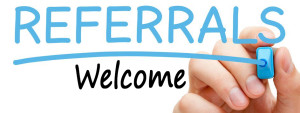
HIV and Relationships
Imagine yourself and your primary intimate relationship. Is it a new relationship? One just beginning? Or have you been in it for so long you don’t remember life without your significant other? Now imagine you have just been diagnosed with HIV, or even AIDS. Imagine on top of being told you have a manageable, but not curable transmittable disease, you have to tell your new friend or your life partner about it.

When do you tell them?
How do you tell them?
What do you tell them?
Do you continue or enter into a primary intimate relationship after receiving an HIV or AIDS diagnosis?
AIDS.gov answers the question of whether someone who is HIV positive can be in relationships and marry with an emphatic yes. People living with HIV/AIDS are both of those things: People and Living. Relationships and intimacy are an important part of a healthy lifestyle, which is all the more important when dealing with any illness, especially a chronic one. Further, people diagnosed with HIV/AIDS often exhibit mental illness such as depression, anxiety, and/or mania in conjunction with the biological part of the disease. That being the case, it is vitally important that someone with HIV/AIDS consciously work to build relationships, whether it be friendships or something more intimate. They must work hard to reject the tendency towards isolating themselves and continue or begin relationships. It can be done with some trust, and some responsibility from both parties.

When to tell:
Revealing your HIV/AIDS status is, in most cases, a personal choice. There is no right or wrong time or way to disclose to a potential or current partner that you have HIV/AIDS. You can go on a few dates, and then tell the person if you feel the relationship is progressing; or you can tell them on the first date. It should be noted, however, that in several states the law does require you to tell your partner your status BEFORE having sex or you could be prosecuted.
Serosorting and serodiscordant relationships:
Some people with HIV/AIDS choose to only have sexual relationships with other people who are HIV/AIDS positive. This is called serosorting and the couple is seroconcordant. However, the World Health Organization estimates that on a global level as many as half of the HIV positive people who are in long term relationships have HIV negative partners. This is called a serodiscordant relationship. Many more people do not know their partner’s status. In a serodiscordant relationship, there is always a risk of passing the disease to your partner, but there are ways to minimize the risk. The use of condoms, medical adherence, and pre-exposure prophylaxis are all ways to both minimize the risk of passing the disease as well as keeping the HIV positive partner healthier, longer.
Intimate relationships are one of the things that make life worth living. Everyone deserves to have a life worth living no matter what illness they face. Being diagnosed with HIV/AIDS does not mean that the person is not lovable, does not deserve love, or does not need love. As with all relationships, trust has to be built, and it has to be the right relationship at the right time. One has to prepare for rejection in relationships no matter who they are or what their circumstances are. It’s what makes finding the right one that much sweeter.







